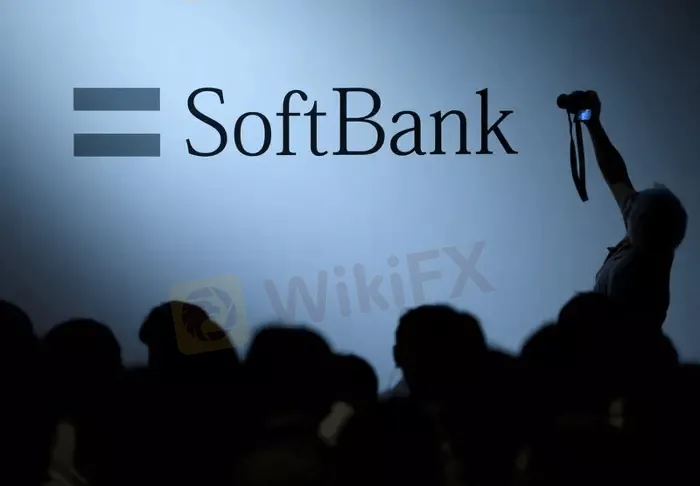简体中文
繁體中文
English
Pусский
日本語
ภาษาไทย
Tiếng Việt
Bahasa Indonesia
Español
हिन्दी
Filippiiniläinen
Français
Deutsch
Português
Türkçe
한국어
العربية
SoftBank posts record $23 billion net loss on Vision Fund pain
Abstract:SoftBank Group Corp on Monday posted a 3.16 trillion yen ($23.37 billion) net loss in the April-June quarter.

SoftBank Group Corp unveiled a $23 billion quarterly net loss on Monday, its biggest ever, as a market sell-off upended tech stocks and shredded valuations at its sprawling Vision Fund unit.
The pain in the April-June quarter comes fresh after the closely watched Vision Fund posted a record $26 billion loss in May, when rising interest rates and political instability disrupted global markets, and could test investor willingness to stomach further big losses.
SoftBank founder and CEO Masayoshi Son has already pledged to tighten investing criteria and preserve cash to ride out the downturn and on Monday he signalled cuts to headcount at the Vision Fund, saying there were no “sacred areas”.
“The world is in great confusion,” Son told a briefing after the release of the results, remarking on the tech sell-off. But he acknowledged the company had invested in more start-ups than it should have and that valuations had been “in a bubble”.
SoftBank also said it had authorised a share repurchase programme worth up to 400 billion yen, something that could assuage investors.
Overall, the sliding portfolio pushed SoftBank to a 3.16 trillion yen ($23.4 billion) net loss in the latest quarter – its largest loss ever. That compared with profit of 761.5 billion yen in the same period a year earlier.
The Vision Fund unit saw a $23.1 billion hit in value.
Listed investments that suffered a fall in value included robotics firm AutoStore Holdings Ltd and artificial intelligence firm SenseTime Group Inc.
SoftBank said it wrote down the value of unlisted assets across its two Vision Funds by 1.14 trillion yen. Analysts have said writedowns of these private assets were unlikely to reflect the extent of current market weakness.
To raise cash, SoftBank has exited companies including ridehailer Uber Technologies and home-selling platform Opendoor Technologies, for a total gain of $5.6 billion.
SoftBank sold Uber at an average share price of $41.47, compared to the Friday closing price of $32.01.
The second Vision Funds stakes in 269 firms were worth $37.2 billion at end-June, compared with an acquisition cost of $48.2 billion.
Plunging initial public offering volumes and market scepticism towards money-losing startups have squeezed an important source of capital for SoftBank, which hopes to list chip designer Arm following the collapse of a sale to Nvidia.
SoftBank hasnt been the only casualty of the tech sell-off.
Hedge fund Tiger Global, which competes with “unicorn hunter” Son on deals, saw its flagship fund fall 50% in the first half of the year after it underestimated the impact of surging inflation on markets.
Berkshire Hathaway booked a $44 billion quarterly loss on its investments and derivatives, with Chief Executive Warren Buffett urging investors to ignore the fluctuations.

Disclaimer:
The views in this article only represent the author's personal views, and do not constitute investment advice on this platform. This platform does not guarantee the accuracy, completeness and timeliness of the information in the article, and will not be liable for any loss caused by the use of or reliance on the information in the article.
Read more

The Daily Habits of a Profitable Trader
Every professional trader follows a structured approach to ensure they are well-prepared, disciplined, and able to seize opportunities with confidence. Whether you are a seasoned investor or an aspiring trader, adhering to a robust daily checklist can significantly enhance your performance. Use this checklist to check if you are a qualified trader

The Impact of Interest Rate Decisions on the Forex Market
Interest rate changes determine currency attractiveness, influencing capital flows and exchange rate trends. Understanding this mechanism helps investors navigate the forex market effectively.

How a Housewife Lost RM288,235 in a Facebook Investment Scam
A 47-year-old housewife in Malaysia recently fell victim to an online investment scam, losing a substantial sum of RM288,235 after engaging with a fraudulent scheme advertised on Facebook.

A Trader’s Worst Mistake: Overlooking Broker Reviews Could Cost You Everything
In today’s digital age, reviews influence nearly every decision we make. When purchasing a smartphone, television, or home appliance, we pore over customer feedback and expert opinions to ensure we’re making the right choice. So why is it that, when it comes to choosing an online broker where real money and financial security are at stake many traders neglect the crucial step of reading reviews?
WikiFX Broker
Latest News
The Withdrawal Trap: How Scam Brokers Lure Victims into Paying More
FCA to Investors: Think Twice Before Trusting These Brokers
Trump\s tariffs: How could they affect the UK and your money
Trump gambles it all on global tariffs he\s wanted for decades
TradingView Brings Live Market Charts to Telegram Users with New Mini App
Trump tariffs: How will India navigate a world on the brink of a trade war?
Interactive Brokers Launches Forecast Contracts in Canada for Market Predictions
Authorities Alert: MAS Impersonation Scam Hits Singapore
Stocks fall again as Trump tariff jitters continue
IG Group Acquires Freetrade for £160M to Expand UK Investment Market
Currency Calculator







